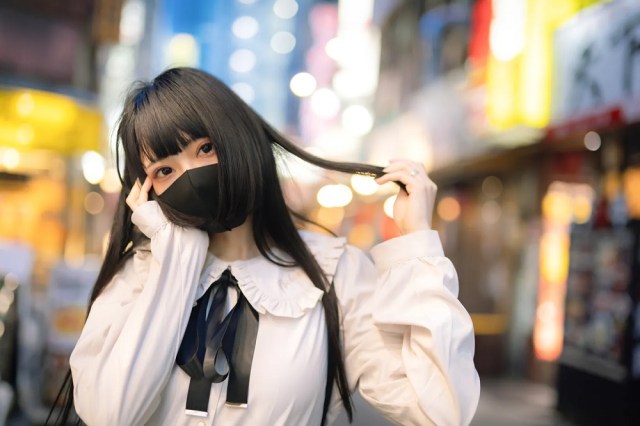The top 70 words that keep showing up in Japanese light novel titles (and yes, isekai is one of them)

I Was Called to a Delicious Alternate World by the Too-Cute Devil Lord isn’t an actual light novel title yet, but it’s only a matter of time, data analysis shows.
The titles of light novels, essentially Japan’s version of young adult fiction, are tremendously long, often sounding more like a summary of the book’s plot than just its name. Part of the reason why is that light novels are primarily aimed at teen and young adult readers of the otaku persuasion, and with so much media being pitched at them in Japan, any one work has to pretty much give its full story pitch in order to stand out from competitors.
Since light novels are always trying to capture the otaku zeitgeist, they’re generally packed with whatever the currently popular tropes of the anime/manga sphere are. When you combine long titles with overlapping themes and motifs, certain words are bound to show up again and again, so let’s take a look at the 70 most common words found in light novel titles, starting with a text mining visual, with larger fonts for more common words.
ここ1年に刊行されたライトノベルのタイトルをテキストマイニングして、出現頻度で図示してもらったやつ。 pic.twitter.com/7lLSk9dqep
— 岡田勘一[編集者・ライター ] (@kanichi0203) September 1, 2021
Japanese Twitter user @kanichi0203 compiled the data by entering the titles of light novels that went on sale in Japan between September of 2020 and August of 2021, as listed in Kono Light Novel ga Sugoi, an annually published light novel guide. The infographic groups words with blue text for nouns, red for verbs, green for adjectives, and gray for greetings/farewells.
● Top light novel title nouns
1. alternate world (isekai / 異世界)
2. strongest/ultimate (saikyou / 最強)
3. rebirth/reincarnation (tensei / 転生)
4. young high-class lady (reijou / 令嬢)
5. hero (yusha / 勇者)

No surprise at the top, as the most common word in light novel titles (and actually not just for nouns, but of any type), is isekai, or “alternate world.” The term has become a genre unto itself while becoming an increasingly common loanword used in discussions by English-speaking otaku.
With the most common way for light novel protagonists to reach those alternate worlds being to suffer an untimely death and then be reincarnated, often acquiring amazing powers that they use to save the alternate world and impress its noble ladies, all those words show up in the top-five-noun list too (on a side note it’s sort of debatable whether saikyou, which all by itself literally translates as “ultimate strength” is a noun, since it’s often used more like an adjective, but that’s how it’s treated in the infographic).
● Top light novel title verbs
1. start (hajimeru / 始める)
2. live (ikiru / 生きる)
3. be overly ~ (sugiru / すぎる)
4. get lively/excited (moriagaru / 盛り上がる)
5. aim for/try to (mezasu / 目指す)

It’s rare for light novels to be one-and-done narratives. Almost every author and publisher wants the story to become a multi-book, years-long series, and with those aspirations baked in from the very beginning, it makes sense that “start”/hajimeru comes in at number one, with “live”/ikiru benefitting from synergy with the noun list’s “rebirth”/tensei.
The other top verbs exhibit some linguistic quirks in that they might not always be rendered as verbs when translated into English. Sugiru, for example, is a verb used in conjunction with other verbs or adjectives to mean “too/too much” or “very/very much,” making it handy for describing the extreme personalities or fantastical worlds of light novel characters and settings.
● Top light novel title adjectives
1. cute (kawaii / 可愛い)
2. cute (kawaii / かわいい)
3. fun (tanoshii / 楽しい)
4. good (ii / いい)
5. strong (tsuyoi / 強い)

Yep, kawaii shows up twice in the top five, occupying both of the highest rankings, with its more formal kanji rendering at number one, and its softer-looking hiragana version at number two. While light novels are primarily a literary art form, they always have lavish cover illustrations, and usually several more drawings inside their pages, and an overall emphasis on attractive character designs and descriptions are a major plus in light of the open desire many series have for an eventual anime adaptation.
Want to boost you light novel title vocab even more? Here’s the complete list of the 70 words in the text map.
● adventure (bouken / 冒険)
● adventurer (boukensha / 冒険者)
● alternate world (isekai / 異世界)
● aim for (mezasu / 目指す)
● bad (warui / 悪い)
● big (ookii / 大きい)
● call, call out (yobu / 呼ぶ)
● can, be able to (dekiru / できる)
● cheat (specifically a video game cheat) (chiito / チート)
● cute (kawaii / 可愛い, かわいい)
● delicious (oishii / 美味しい, おいしい)
● devil lord (maou / 魔王)
● do (especially inadvertently) (shimau / しまう)
● duke (koushaku / 公爵)
● dungeon (danjon / ダンジョン)
● expel, drive off (tsuihou / 追放)
● farewell (saraba / さらば)
● few (sukunai / 少ない)
● fun (tanoshii / 楽しい)
● get (morau / もらう)
● girl (shoujo / 少女)
● give to me/do for me (kureru / くれる)
● good (ii / いい, also yoi / 良い)
● goodbye (sayounara / さようなら)
● hero (yusha / 勇者, also eiyuu / 英雄)
● I/me (boku / 僕)
● Infatuation (dekiai / 溺愛)
● kind, gentle (yasashii / 優しい)
● know (shiru / 知る)
● life (raifu / ライフ)
● lifestyle (seikatsu / 生活)
● live, be alive (ikiru / 生きる)
● live, reside (kurasu / 暮らす)
● liven up (moriagaru / 盛り上がる)
● love (aisu / 愛す)
● magic (mahou / 魔法)
● make (tsukuru / 作る)
● master (shi / 師)
● new (atarashii / 新しい)
● no (iie / いいえ)
● noble, respectable (tottoi / 尊い)
● noble, aristocratic (kizoku / 貴族)
● old (furui / 古い)
● overly (sugiru / すぎる)
● peerless/matchless (musou / 無双)
● pick up (hirou / 拾う)
● prince (ouji / 王子)
● princess (hime / 姫)
● rank (ranku / ランク)
● rebirth/reincarnation (tensei / 転生)
● sage (kenja / 賢者)
● saint, holy woman (seijo / 聖女)
● say (iu / 言う)
● skill (especially in a video game context) (sukiru / スキル)
● skillful (umai / 上手い)
● slow (osoi / 遅い)
● slow life (suroo raifu / スローライフ)
● start (hajimeru / 始める, はじめる also hajimaru / 始まる)
● strict, severe (kibishii / 厳しい)
● strong (tsuyoi / 強い)
● strongest/ultimate (saikyou / 最強)
● sweet (amai / 甘い)
● think (omou / 思う)
● throw away (suteru / 捨てる)
● villain (akuyaku / 悪役)
● weak (yowai / 弱い)
● welcome (youkoso / ようこそ)
● welcome home (okaeri / おかえり)
● world (sekai / 世界)
● young high-class lady (reijou / 令嬢)
Using the list and a random number generator, we can come up with plausible titles that we might see for future light novels, such as:
● Adventure Girls are Overly Strict
● I Was Expelled from the Dungeon?!?
● There are Few Saintly Women who are Kind, Fun, and Infatuated with Me
● Cheat Lifestyle Love
● Picking up a Sweet Master
● Don’t You Think Peerless Villains Have Delicious-rank Lives?
▼ “Whoa, these adventure girls are so strict!”

More detailed data analysis of light novel titles can be found on @kanichi0203’s blog here. In the meantime, even if you’re not ready to tackle reading an entire light novel in Japanese, the list should help you understand a big part of a lot of titles.
Source: Titter/@kanichi0203 via Otakomu, Note
Top image: Pakutaso
Insert images: Pakutaso (1, 2, 3, 4)
● Want to hear about SoraNews24’s latest articles as soon as they’re published? Follow us on Facebook and Twitter!
Credit:

0 comments: